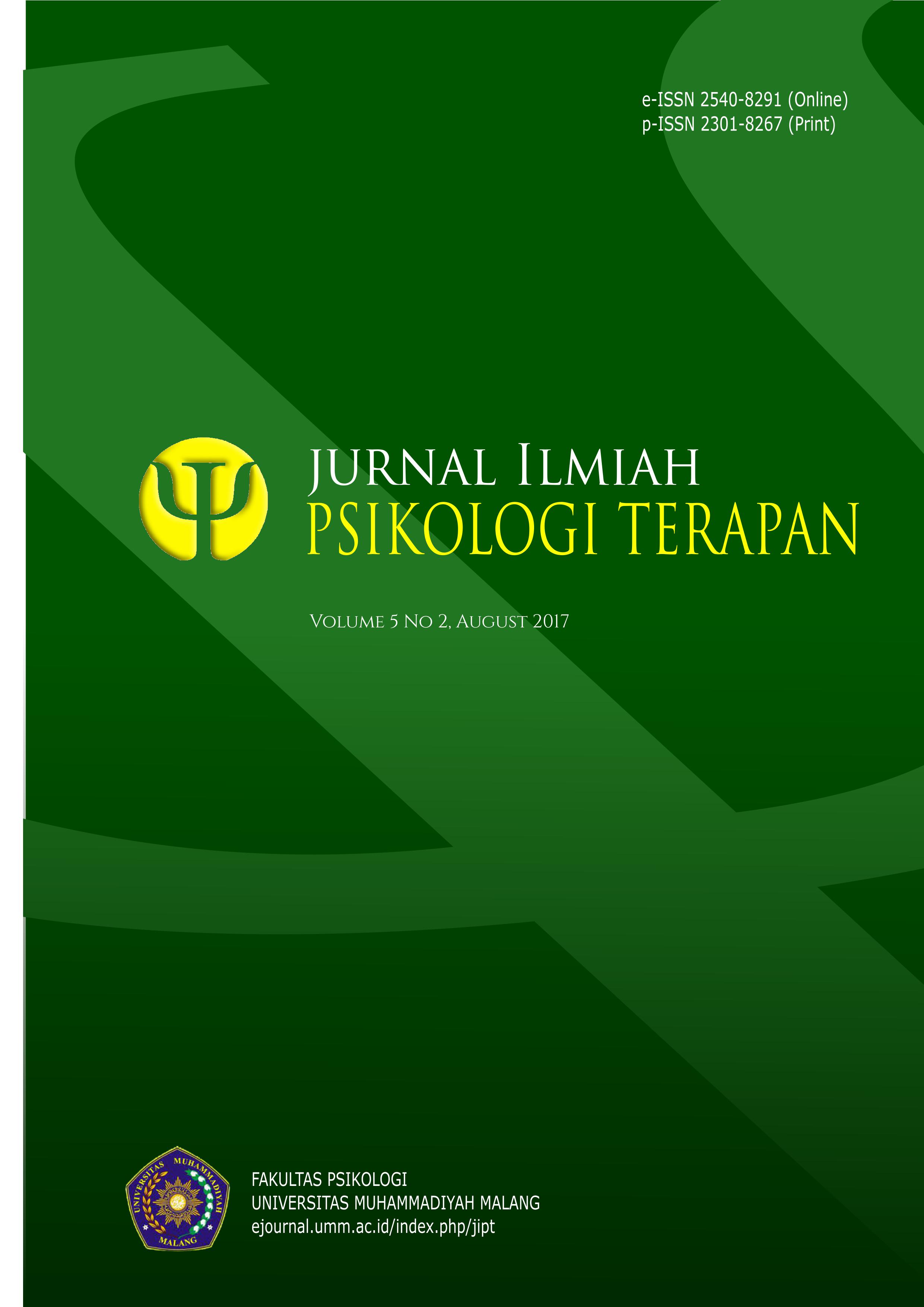PARENTING SELF EFFICACY AYAH PADA NUCLEAR DAN EXTENDED FAMILY
DOI:
https://doi.org/10.22219/jipt.v5i2.4939Keywords:
PSE, nuclear family, extended familyAbstract
Bentuk keluarga di Indonesia cukup beragam, namun secara garis besar bentuk keluarga tersebut dibagi menjadi nuclear family dan extended family. Kedua bentuk keluarga ini memiliki perbedaan mendasar dari anggota keluarga yang ada dalam keluarga tersebut, dimana keduanya mampu menimbulkan dinamika yang berbeda khususnya dari ketersediaan dukungan sosial dan berdampak terhadap Parenting Self-Efficacy (PSE) ayah. Penelitian ini bertunjuan untuk mengetahui apakah ada perbedaan PSE ayah pada nuclear dan extended family yang diukur dengan menggunakan Fathering Self-Efficacy Scale (FSES), dimana desain penelitian yang digunakan adalah penelitian kuantitatif. Teknik sampling dalam penelitian ini adalah snowball dengan jumlah subjek sebesar 200 orang dan data yang didapatkan dari subjek dianalisis dengan menggunakan uji Mann Whitney. Hasil penelitian menunjukkan nilai Z= -1.273 dan p=0.216 (p>0.05) sehingga dapat diketahui bahwa tidak terdapat perbedaan yang signifikan terhadap PSE ayah pada nuclear dan extended family.
Kata Kunci: Parenting Self-Efficacy, nuclear family, extended family
There are a lot of family form in Indonesia, but the outline of that form devides into nuclear family and extended family. The basic difference of both of them is family member who existing in and causes a different dynamic spesifically the availibilty of social support, so at the end of the day it will affect on father’s Parenting Self-Efficacy (PSE). The aim of this study is identying the differences of PSE level between father in nuclear family and extended family by using a Fathering Self-Efficacy Scale (FSES) with quantitative as a research design. Snowball is a sampling technique with 200 subjects and the data is analyzed by using Mann Whitney test. The result shows Z score=-1.273 and p=0.216 (p>0.05), therefore there is no significant differences of PSE level between father in nuclear and extended family.
Keywords: PSE, nuclear family, extended family
Downloads
Downloads
Published
How to Cite
Issue
Section
License
Authors who publish with Jurnal Ilmiah Psikologi Terapan agree to the following terms:
- For all articles published in Jurnal Ilmiah Psikologi Terapan, copyright is retained by the authors. Authors give permission to the publisher to announce the work with conditions. When the manuscript is accepted for publication, the authors agree to automatic transfer of the publishing right to the publisher.
- Authors retain copyright and grant the journal right of first publication with the work simultaneously licensed under a Creative Commons Attribution-ShareAlike 4.0 International License that allows others to share the work with an acknowledgment of the work's authorship and initial publication in this journal.
- Authors are able to enter into separate, additional contractual arrangements for the non-exclusive distribution of the journal's published version of the work (e.g., post it to an institutional repository or publish it in a book), with an acknowledgment of its initial publication in this journal.
- Authors are permitted and encouraged to post their work online (e.g., in institutional repositories or on their website) prior to and during the submission process, as it can lead to productive exchanges, as well as earlier and greater citation of published work (See The Effect of Open Access).

This work is licensed under a Creative Commons Attribution-ShareAlike 4.0 International License.











